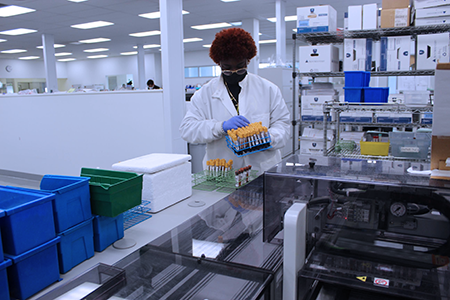Understanding the Basics of Familial Hypercholesterolemia (FH)

Cardiovascular diseases are common conditions that affect a significant number of Americans and can cause heart attacks, strokes, and heart failure. One of the most common cardiovascular diseases is called heart disease, which affects 1 in 10 adults¹.
Although heart disease has many different causes, one little-known but important cause of heart disease is a condition called Familial Hypercholesterolemia. Read more below to learn about this serious, but treatable, cause of heart disease.
What is FH?
Familial hypercholesterolemia (FH) is a common genetic disorder affecting approximately 1 in 250 people². FH causes high cholesterol and increases the risk of heart attack, stroke, peripheral vascular disease, and coronary heart disease. People with untreated FH have twenty times the risk of developing coronary heart disease and often have heart attacks at a younger age than average³.
About 50% of men with untreated FH will experience a heart attack by age 50 and around 30% of women with untreated FH will experience a heart attack by age 60 ⁴.
What does FH do to the body?
When a person has FH, their body is unable to remove low-density lipoprotein (LDL) cholesterol from the blood. LDL cholesterol then accumulates in the arteries in the form of plaques, which is a process known as atherosclerosis or “hardening of the arteries.” Clots can form in narrowed arteries, or plaques can break off and block smaller blood vessels. If plaques partially or fully block blood flow, this can starve tissues of oxygen, leading to damage, chest pain, or heart attacks.
When the large arteries on the surface of the heart are affected, this is called coronary artery disease. Coronary microvascular disease, a condition more common in women¹, is when smaller blood vessels of the heart are no longer working properly.
Symptoms of FH
- High cholesterol. LDL cholesterol levels over 190 mg/dL in adults (and over 160 mg/dL in children) is the main symptom in most people.
- Family history of early heart disease or heart attacks
In some people, FH can also cause a buildup of cholesterol within the body which may result in physical signs such as:
- Swollen or painful Achilles tendon
- Bumps around the knees, knuckles, or elbows
- Yellowish area around the eyes
- A whitish gray color in the shape of a half-moon on the outside of the cornea

Investigating the Genetics of FH
Most cases of FH are inherited in an autosomal dominant manner, which means a copy of a disease-causing variant is inherited from one parent. To illustrate this concept, let us look at the LDLR gene, which is the most common known genetic cause of FH. The job of the LDLR gene is to carry LDL cholesterol out of the blood, which is necessary to reduce the risk of cardiovascular disease.
Each of us possesses two copies of the LDLR gene, inheriting one copy from our mother, and the second copy from our father. When one copy of LDLR has a disease-causing variant, sometimes referred to as a mutation, the gene does not function as it should. As a result, cholesterol cannot be cleared from the blood as effectively and builds up over time, leading to an increased risk for cardiovascular disease.
However, some cases of FH can be caused by inheriting two copies of a disease-causing variant in the same gene, one from each parent. This is referred to as autosomal recessive FH, which is typically a more severe form of FH. Autosomal recessive FH can cause very high cholesterol and heart attacks in childhood. Without proper treatment, this type of FH often causes death before age 30 ⁴.

Addressing Common Challenges with FH What can I do?
Because FH is a genetic condition, genetic testing for FH can inform yourself and your family members of your status. Testing can prompt early treatment, which can reduce the risk of developing coronary heart disease by up to 80% ².
If you have a family history of early heart disease or heart attacks, or you have high cholesterol levels, speak to your healthcare provider about genetic testing for FH. HNL Genomics offers a panel for FH testing, which can identify disease-causing variants in genes that are known to be associated with FH.
REFERENCES
¹National Heart, Lung, and Blood Institute. (2022, March 24). Coronary heart disease. National Institutes of Health. https://www.nhlbi.nih.gov/health/coronary-heart-disease²Centers for Disease Control and Prevention. (2022, February 10). Familial hypercholesterolemia. U.S. Department of Health and Human Services. https://www.cdc.gov/genomics/disease/fh/FH.htm#:~:text=Familial%20hypercholesterolemia%20(FH)%20is%20a,disease%20at%20a%20younger%20age
³ American Heart Association. (2020, November 09). Familial hypercholesterolemia (FH). https://www.heart.org/en/health-topics/cholesterol/causes-of-high-cholesterol/familial-hypercholesterolemia-fh
⁴National Organization for Rare Disorders. (2021, February 22). Familial hypercholesterolemia. https://rarediseases.org/rare-diseases/familial-hypercholesterolemia/?filter=ovr-ds-resources